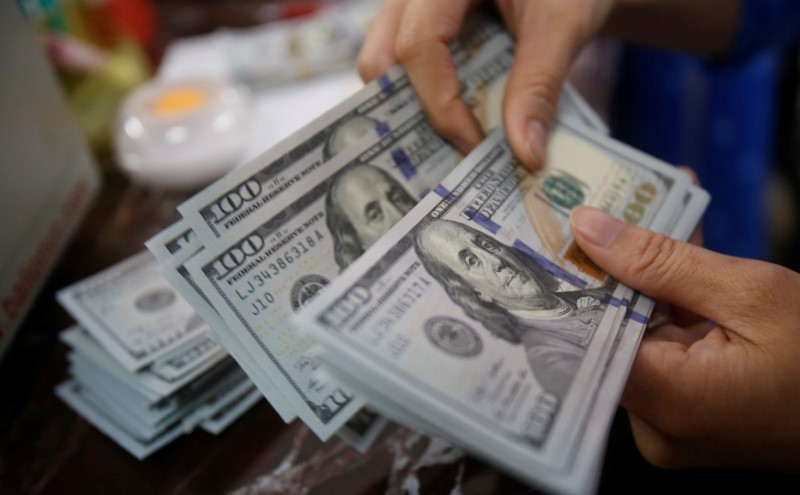Stock market today: Dow in fresh record close as Powell signals rate cut incoming
* Dollar remains close to 2018 lows
* Sterling on edge heading in to crucial Brexit weekend
* Investor take shelter in safe haven Swiss franc
* Graphic: World FX rates in 2020 https://tmsnrt.rs/2RBWI5E
By Julien Ponthus
LONDON, Dec 11 (Reuters) - Pressure was easing on the dollar
on Friday, with the currency set to snap out of three straight
weeks of losses while sterling still suffered due to fears a
post-Brexit trade deal might not be reached before the end of
2020.
Overnight, hopes of a global economic rebound and a fading
pandemic in 2021 saw investors taking bets on riskier currencies
linked to rising commodity prices.
Surging iron ore prices had lifted the Australian dollar
AUD= to a two-and-a-half year high of $0.7542.
A nine-month peak for oil prices also had pushed the
Canadian dollar CAD= to its highest since 2018.
But at 0900 GMT, pressure was easing on the greenback, which
was back up 0.2% against a basket of major currencies, trading
at 90.867 but still not far from a two-and-a-half year low of
90.471.
The euro was taking a breather, down 0.12% against the
dollar after Thursday's gains when the ECB announced a new round
of stimulus in line with markets expectations and EU leaders
reached a compromise over a pandemic aid package.
The common currency has soared 15% from three-year lows at
the height of the March markets panic and has added nearly 2% in
two weeks since finally breaking $1.20 after multiple attempts.
Sterling GBP= on the other hand was still under pressure
in early trading, down about 0.75% at $1.3193 ahead of a weekend
of brinkmanship as British and EU negotiators have been told
they have until the end of Sunday to decide whether a trade deal
is possible. GBP/
The pound has slipped 1.8% this week as British and European
leaders have expressed doubts that they will be able to salvage
a deal.
But options market moves show traders bracing for chaos,
with one-week implied volatility GBPSWO= at a new eight-month
high and the premium of sterling puts to calls GBP1MRR= near
its highest since April as investors pay up for downside
protection.
"In addition to Sterling the Swiss franc is the main victim
of the rising Brexit uncertainty - the difference being that it
is under appreciation rather depreciation pressure, which is
unlikely to please the Swiss National Bank though", Commerzbank
analyst Thu Lan Nguyen.
The Swiss franc is trading at a 2015 high against the
dollar, and was rising 0.28% at $0.8854.
